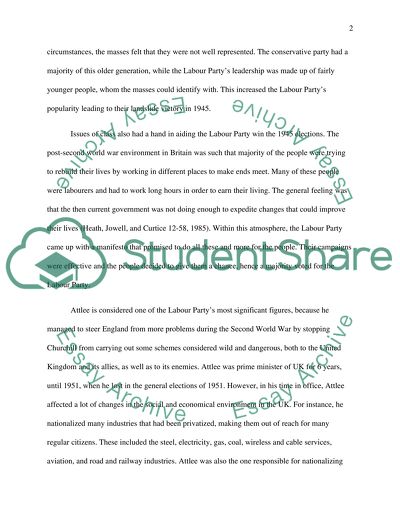Cite this document
(“Why Did the Labour Party Win Power in 1945 and Lose It in 1951 Essay”, n.d.)
Retrieved de https://studentshare.org/history/1440792-why-did-the-labour-party-win-power-in
Retrieved de https://studentshare.org/history/1440792-why-did-the-labour-party-win-power-in
(Why Did the Labour Party Win Power in 1945 and Lose It in 1951 Essay)
https://studentshare.org/history/1440792-why-did-the-labour-party-win-power-in.
https://studentshare.org/history/1440792-why-did-the-labour-party-win-power-in.
“Why Did the Labour Party Win Power in 1945 and Lose It in 1951 Essay”, n.d. https://studentshare.org/history/1440792-why-did-the-labour-party-win-power-in.


